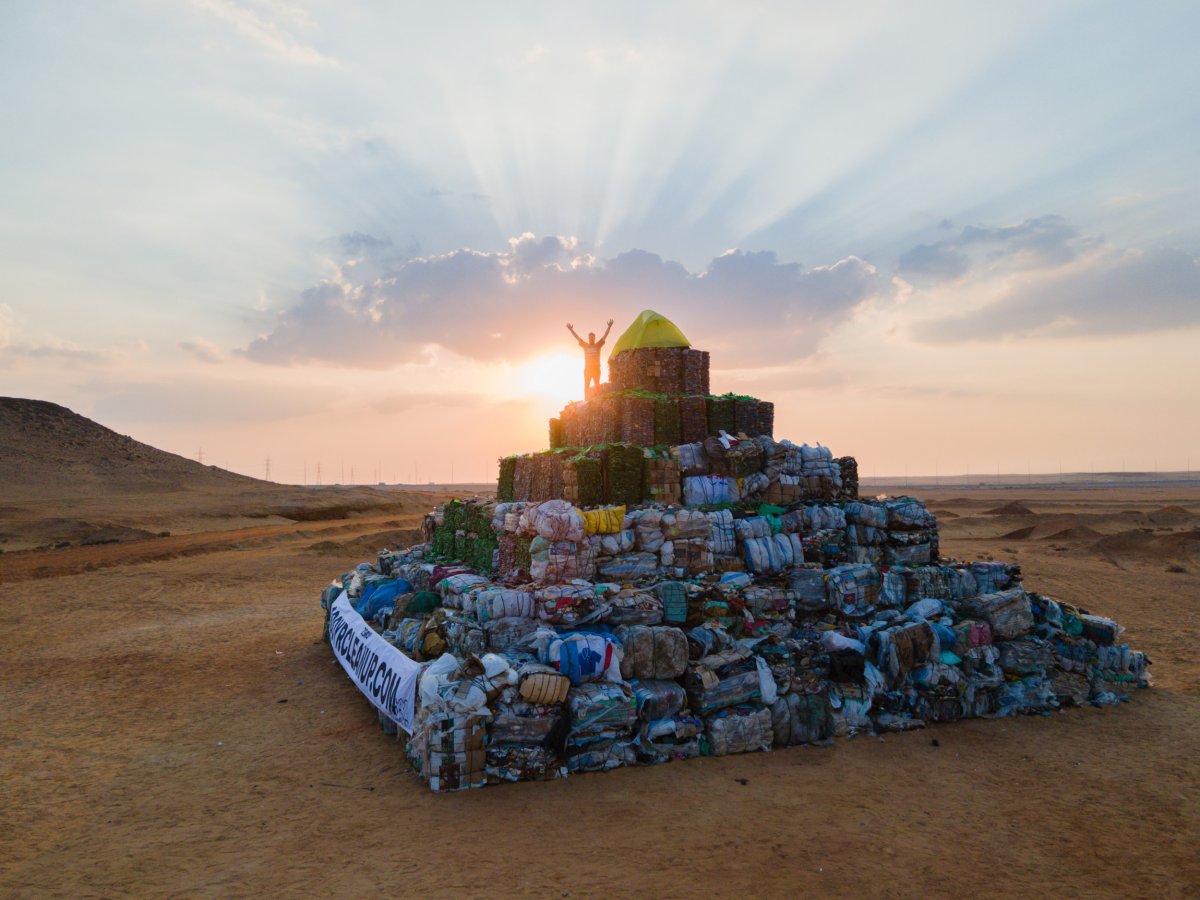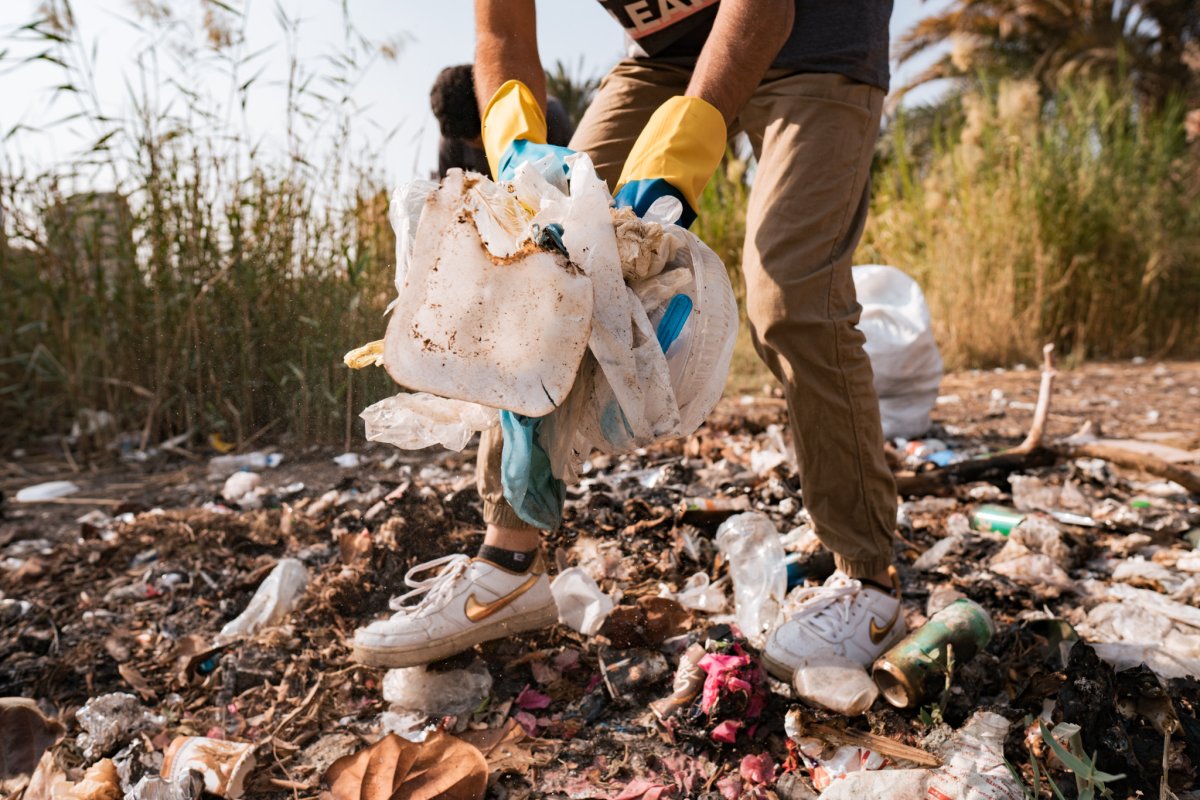A new pyramid has appeared in the Egyptian desert. But instead of blocks of limestone, the structure is made entirely out of waste plastic.
The installation, conceived by Australian zero-waste startup, Zero Co, and purpose-driven wine brand, The Hidden Sea, was constructed to raise awareness about plastic pollution and global waste in the run-up to the COP27 conference taking place in Egypt this week.

"The pyramid took a total of five days to construct and is made from almost 45,000 pounds of salvaged plastic pulled from the Nile River," Mike Smith, CEO of Zero Co, told Newsweek. "The collection process took almost a month."
The river clean-up was done in partnership with VeryNile, an organization based in Cairo dedicated to removing waste from the waters and banks of the Nile river. The resulting trash pyramid was constructed with the help of Egyptian artist Bahia Shehab, who uses creativity as a tool for social change.
"The pyramid stands over 32 feet tall–the size of a three-story building–and is the largest waste structure, of its kind, ever constructed," Smith said.
As part of the stunt, Smith slept on top of the pyramid for the three nights running up to COP27.
"A waste pyramid is not exactly the most ideal place for 'accommodations,'" he said. "The structure is sitting in the hot Egyptian desert sun, so it has a bad smell and is covered with flies, due to all of the waste!
"The first night I was a bit concerned that the pyramid might collapse...Sleeping on top has definitely not been the most enjoyable experience and it's safe to say that this would never be able to be listed on a site like AirBnB."

His short stint atop the trash pyramid did have some highlights: "The view from the top of the pyramid is absolutely incredible, especially in the mornings at sunrise. The desert is completely silent and the sunrises over the sand dunes can't be beat."
The pyramid marks the start of an initiative, called the 100yr Cleanup, to raise money for large-scale cleanup projects over the next century. So far, over $250,000 has been raised for the project.
"The response to the pyramid structure has been incredible," Smith said. "I think there is this fantastic element of surprise because nothing like this has ever been done before."
When the conference is over, the team will deconstruct the trash pyramid and send all of the recyclable plastic used in its construction to local recycling facilities.
While the structure is only temporary, Justin Moran, co-founder of The Hidden Sea, hopes that the impact will be permanent. "If companies and consumers get behind us, the collective impact could be epic with a genuine legacy," he told Newsweek. "Egypt is on the global stage right now as the location of COP27. If we cut through even a fraction of the noise and put eyes on the problem, we've really done a good job."
Uncommon Knowledge
Newsweek is committed to challenging conventional wisdom and finding connections in the search for common ground.
Newsweek is committed to challenging conventional wisdom and finding connections in the search for common ground.
About the writer
Pandora Dewan is a Senior Science Reporter at Newsweek based in London, UK. Her focus is reporting on science, health ... Read more
To read how Newsweek uses AI as a newsroom tool, Click here.








